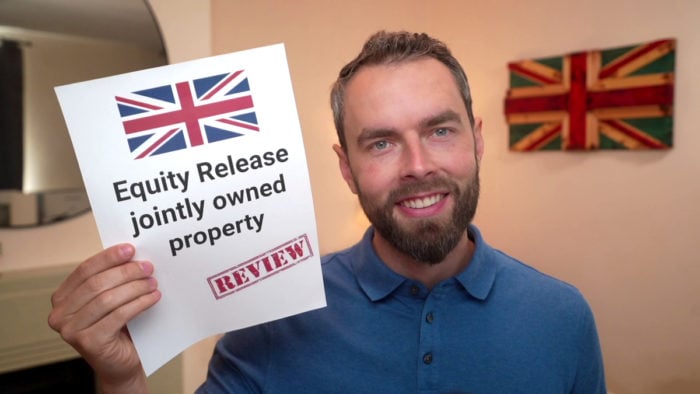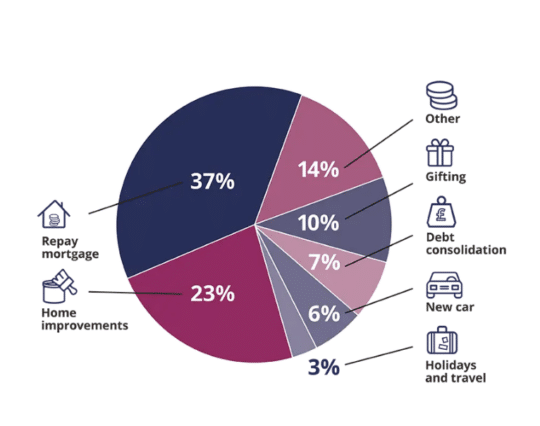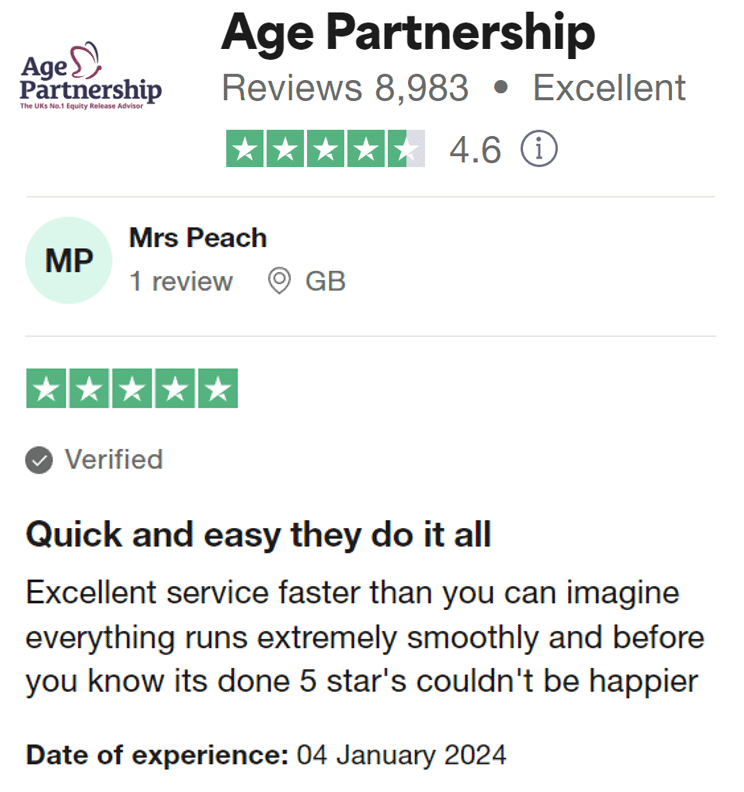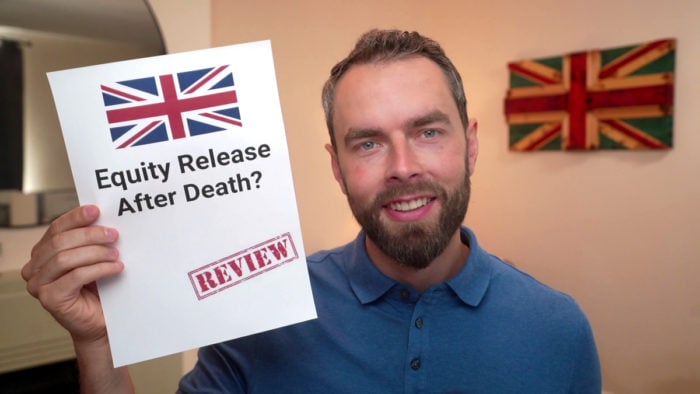Equity Release on Jointly Owned Property? Complete Guide
Our preferred equity release adviser is Age Partnership. For free and impartial money advice you can visit MoneyHelper.

Our preferred equity release adviser is Age Partnership. For free and impartial money advice you can visit MoneyHelper.
Are you curious about equity release on a jointly owned property and how it works in the UK? You’re at the right spot! This guide is here to answer your questions and help you understand better. We’ve helped over 7,000 people each month, just like you, to figure out the world of equity release.
In this article, we’ll explain:
- What equity release is and how it works.
- How to get a realistic quote.
- If equity release has to be in joint names.
- How to get equity release with joint ownership.
- How equity release affects your state pension.
Equity release can be a bit tricky to understand, but there’s no need to worry. We’re here to make things clear and simple for you. We understand your worries and will help you figure everything out. Let’s dive in and uncover the facts about equity release on jointly owned property.
How does it work?
Equity release is a way for senior homeowners to take out some of their home equity as a cash lump sum or through regular payments known as a drawdown (or drawdown equity release).
The money they receive is a loan that needs to be paid back to the lender. But it is not repaid like most other loans through monthly repayments. The debt is only repaid through the sale of the property after the homeowner dies. The home must be sold after death by the estate beneficiaries (unless they agree to clear the debt with cash) and the sale proceeds are first used to clear the debt before becoming part of the deceased’s estate.
There is one situation where the property must be sold before death to pay back the loan. If the homeowner needs to move into a long-term care facility and will no longer be living at their home, the property must be sold at this point to repay the debt. Any remaining money from the sale proceeds after the debt is paid back will be the homeowner’s to keep.
Equity release plans come in two forms, either as a lifetime mortgage or as a home reversion plan. We explain the differences below:
Lifetime mortgage
A lifetime mortgage gives the homeowner a loan up to 60% of the value of their home equity at best. This loan is subject to a compounding fixed interest rate that rolls up each month, meaning the debt grows bigger over time. It can be possible to repay some or all of the monthly interest to prevent the total debt from increasing exponentially.
A lifetime mortgage is best understood with an example. Let’s imagine you take out £65,000 equity from your £150,000 property. You agree to a 6.4% interest rate and move into long-term care 12 years later. At the time you move into care, your debt will have grown to almost £137,000 and will need to be repaid through the sale of your home.
How equity release could help
More than 2 million people have used Age Partnership to release equity since 2004.
How your money is up to you, but here’s what their customers do…
Find out how much equity you could release by clicking the button below.
In partnership with Age Partnership.
Home reversion plan
Home reversion plans are not as common as lifetime mortgages. They offer the loan but do not charge interest. The debt is repaid by agreeing to give the lender a much greater percentage of the property’s sale value in comparison to the percentage of equity taken out. If the property increases in value by this time, the lender makes an even bigger profit on the deal.
For example, you might use a home reversion scheme to receive a £40,000 loan from your £200,000 property. In return for your 20% of equity, you must give the lender 50% of its future sale value when you die or move into care, which could be £100,000 or more depending on the new property value.
Only consider lenders that are authorised and regulated by the Financial Conduct Authority.
What is it commonly used for?
Equity release is used by seniors to help them financially through their retirement or earlier. The money might be used to clear debts, go on holidays, pay for care services, complete home improvements or just general living expenses.
Some seniors release equity to give the loan money to their family, often operating as the bank of mum and dad to help children get on the property ladder.
Can you take equity out of shared ownership?
Shared ownership is when you buy a percentage of a property with another party purchasing the remaining percentage of the same property, such as 50/50 or 80/20. It is not the same as joint property ownership because in shared ownership the percentage of the property does not automatically pass to the other party after death; it passes on to whoever is named in the deceased’s will.
Equity release plans are only available to people who own 100% of their property with no outstanding residential mortgage debt (although some may allow you to release equity with a small mortgage remaining). Therefore, it is not possible to use an equity release plan on a shared ownership property alone because you do not own 100% of the property. You may be able to do so if you both want to take out an equity release plan together.
Join thousands of others who release equity
Age Partnership have helped over 2 million people release equity from their home.

Mrs Wareham
“I am more than pleased to have taken out Equity Release with Age Partnership.”
Reviews shown are for Age Partnership. Search powered by Age Partnership.
Can you get it with joint ownership?
Two senior homeowners who have joint ownership of a single property can take out a lifetime mortgage or home reversion plan together. This is a common scenario with many senior couples deciding on an equity release plan.
Does it have to be in both owners’ names?
If you own a property with another person, such as your spouse or civil partner, you must take out the equity release plan with that person. Both owners of the property must agree to the agreement to get equity release.
Jointly owned properties
Equity release on jointly owned properties will mean the debt does not have to be repaid until the last surviving person dies or moves into long-term care.
For example, if Ed and Julie take out an equity release plan and Ed dies, Julie can continue living in the property without repaying any of the debt or making monthly repayments. The debt will only be repaid from the sale of the property if Julie needs to move into long-term care or after she passes away.
Do both homeowners have to be over 55?
As mentioned earlier, to be eligible to get equity release in the UK you must be at least 55 years old. If you take out equity release on a jointly owned property, both homeowners are required to meet the age requirement.
Can we remove the younger unqualified homeowner and then apply?
Some advisers will suggest removing one of the homeowners if they are too young to qualify for a lifetime mortgage. This is possible.
But it can be a risk and could leave the younger homeowner homeless in the future because the debt will need to be repaid as soon as the older (and now sole) homeowner dies or moves into care. It is best discussed using legal advice services.
» TAKE ACTION NOW: Fill out the short debt form
Can two people take it out if only one name is on the deeds?
If you bought a property alone but now live with someone else, such as a new spouse or partner, you will need to add their name to the property ownership to take out an equity release plan in both names. This can sometimes be done as part of the equity release application and should be discussed with your adviser first.
What if more than two people own it?
Sometimes more than two people own a property together. An example of this is a husband and wife adding their son or daughter to the property deeds as a way to stop the property from having to be sold in the event that one or both of the couple need to go into a care home. It can be the case that the property is forcibly sold to pay for care, but it is not possible if someone else owns the property too.
But equity release plans are only available to properties with single or joint ownership. Even if the third owner met the age requirement of equity release this is not possible. One would need to be removed to use an equity release product.
My partner is not part of my plan – what can I do?
You may be in a situation where you took out a lifetime mortgage on your own but then met somebody new who now lives with you or is even your new spouse or partner. It can be possible to add a new partner to your equity release plan, but it will depend on that person’s age on the date you took out the plan.
If they were younger than 55 when the plan started, it will not be possible. But if they were 55 or over when the plan began, you can do this for a fee.
Do you pay tax?
The money you receive from an equity release loan is not taxed. The money is a loan that needs to be paid back and is therefore not subject to income tax, Capital Gains Tax (CGT) or any other type of tax.
Equity release can have implications on the inheritance tax owed by estate beneficiaries. This should be discussed with your financial adviser.
Can only one person take out a loan?
It is possible for one person to take out a secured loan on a jointly owned property. However, all parties must be aware of the loan and consent to it.
Things to consider
Equity release will involve a home reversion or a lifetime mortgage, which is secured against your property and will reduce the value of your estate and impact funding long-term care. Our equity release partner, Age Partnership provides a personalised illustration to explain the full details. The money you release, plus the accrued interest is then repaid when you die or move into long-term care. Advice is required before proceeding with equity release and any existing mortgage must be repaid. Age Partnership provide initial advice for free and without obligation. Only if your case completes would Age Partnership’s advice fee of £1,895 be payable. Other lender and solicitor fees may apply.


